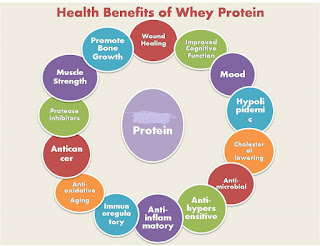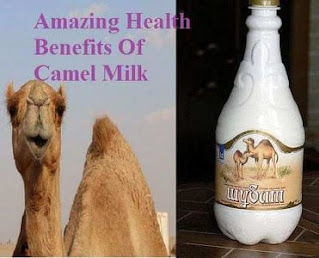Health benefits of proteins include production and smooth functioning of enzymes and hormones and provide cellular and muscular health. It facilitates molecular transportation, cell repair, and regeneration and provides mechanical and structural support to the bones and skin. Consumption of adequate protein ensures strong immune defense, efficient signaling of nerves and impulses, healthy hair and maintenance of fluid balance in the body. Protein can also turn into an energy provider when required by the body. Proteins are responsible for the formation, regulation, repair, and protection of the body of each organism. It executes a range of functions within living beings including catalysis of enzymes, DNA replication communication, and coordination within the cells, molecular transportation from one location to another.
Sources of Proteins
Good sources of proteins are not hard to find for both vegetarians and non-vegetarians. Vegetarians can choose from nuts, seeds, soy products like tofu, dairy products, and legumes including a variety of beans such as pinto beans, kidney beans, garbanzo beans, and split peas. Meat eaters can choose from eggs, turkey, cooked lean meat, and fish.
Nutritional Value of Proteins
A number of amino acids present in proteins determine the nutritional value of a protein which may vary for different foods. For instance, soy products and animal proteins contain all essential amino acids whereas; the plant proteins are generally deficient in few amino acids. It is advisable for the people following strictly vegetarian or vegan diet to include and combine various foods with a range of amino acids to fulfill their daily requirement.
Amazing benefits of proteins intake include:
Muscular health:
Proteins play an important role in muscle contraction and coordination. Proteins are present in the muscle tissues in the form of many microfilaments and provide muscle structure. Muscle growth depends on the adequacy of proteins in the body. It is extremely important to create a balance between the rate of muscle protein synthesis and the breakdown of these muscle proteins. The rate of breakdown of muscle proteins varies depending upon specific conditions, for example, the requirement of protein is different during old age, when the breakdown of muscles accelerates and is different for strength trainers who would also need to consider perfect timing along with the amount of protein intake.Immune defense:
Proteins are vital to the building stronger immune system. The body runs a mechanism of self-defense and protects itself from various infections and diseases with the help of antibodies. These antibodies are specific proteins which have the ability to detect foreign elements also known as antigens. The body responds to the antigens by the production of specific antibodies and deactivates it.Nerve signaling:
Another important task performed by proteins is the smooth functioning of nervous system. The nervous system of the body is activated whenever it is triggered and in turn, responds with an appropriate reaction. The receptor sites present in the nervous system, which is accountable for the prompt response comprises of protein complexes. These receptor proteins assist in the transmission of nerve signals within the cells and regulate the central nervous system.Fluid equilibrium:
Balancing and regulation of fluids present in the body is another critical task performed by the proteins attributing to their effect on osmosis. As water is drawn towards the protein, better the quantity of proteins within a cell, more balanced would be the water content present in it. Drop in the levels of proteins results in a fluid imbalance which may lead to the deviation of acidity or ‘ph’ value in the body from the normal range. Fluid imbalance in the blood may result in leakage of fluid in the blood vessels and get accumulated in the tissues causing edema. Fluid balance in the body is also important for other functions such as the functioning of muscles and nerve cells.Source of energy:
Proteins can also benefit the body by being a source of energy. Consumption of the diet which fails to provide enough energy to the body such as during starvation or weight-loss programs causes the body to use its own functional proteins in order to compensate. As the body does not store extra proteins, enzymes and muscle proteins break down to yield amino acids to provide energy or synthesize glucose and ensure a continuous supply of energy to the cells.Healthy hair:
Proteins help in maintaining healthy hair and protects them from damage. Studies conducted in this regard have advocated the role of proteins as a modulator of hair growth. Attributing to these beneficial effects, proteins are widely used in the manufacturing of hair care products such as conditioners.Enzymes and hormones:
Enzymes are protein catalysts which play an important role in all the biochemical processes and reactions occurring in the body. Without altering themselves, these enzymes accelerate the rate of all the chemical events. The performance of the chemical processes depends upon the measure of enzymes present in the body. A slower rate of reactions and processes indicate a deficit of necessary enzymes in the body. Various protein hormones such as insulin, growth hormone, and glucagon also comprise of amino acids which play an important role in various functions operating in the body.Molecular transportation:
Another major task performed by proteins is the transportation and storage of various substances across the cell membranes. This is vital for smooth flow of blood and nourishment of the body. For instance, a passage of oxygen in the red blood cells is done by an important protein called hemoglobin. Another protein called ferritin is responsible for storing iron and blood in the liver.Healthy skin:
Proteins are also responsible for extending mechanical support and strength to various tissues which suffer from constant wear and tear such as skin. Collagen is an important and abundant fibrous protein which provides strength to the cells, tissues, and organ such as skin which needs to be revitalized on a continuous basis. A study conducted on UV-irradiated subjects has revealed positive results of collagen with respect to restoration of dermal collagen protein synthesis. The healthy, low wrinkled and youthful appearance of the skin largely depends on the levels of collagen protein in the body.Cell and tissue regeneration:
Renewal and restoration of cells and tissues are extremely vital for the maintenance of the healthy body. The body needs a constant supply of amino acids for the formation of proteins that manufacture new cells and tissues such as nails, hair, and skin. The cells present in the digestive system, skin, and blood do not last for more than a couple of weeks and begin to perish. That’s the time for the creation and replenishment of new and healthy cells to replace the deceased ones. This process of revival of new cells and tissues performed by proteins help sustain good health. Proteins are also used for manufacturing of cell regenerative medicines.Mechanical support for Joints:
As already mentioned, the body contains a structured protein called collagen which helps in providing structural scaffolding to the cells. Collagen also helps in sustaining bone health. Individuals doing heavy exercises and athletes working out for multiple hours depend upon the body’s ability to produce collagen in order to prevent the joints from injury and keep them healthy and strong. A recent study conducted in this regard has advocated the efficacy of collagen protein in the treatment of inflammatory conditions such as osteoarthritis.How Much Protein Is Recommended?
Regular consumption of a diet with a balanced proportion of nutrients provides enough proteins without any additional protein supplementation. The recommended dose of daily protein requirement varies with individual health and age. However, 2-3 servings of food rich in proteins are enough to satisfy the daily requirement of most of the adults. For example, 1 egg or 1 ounce of cheese or ½ cup cooked beans makes one serving. For infants and older children, proteins requirement grows with their age.
As a guide, dietary recommendation for protein intake is 0.75 grams/kg for women and 0.84 grams/kg for men. For special cases such as old age, pregnancy, lactation, athletes and weight trainers, the protein requirement may differ from the normal values.







